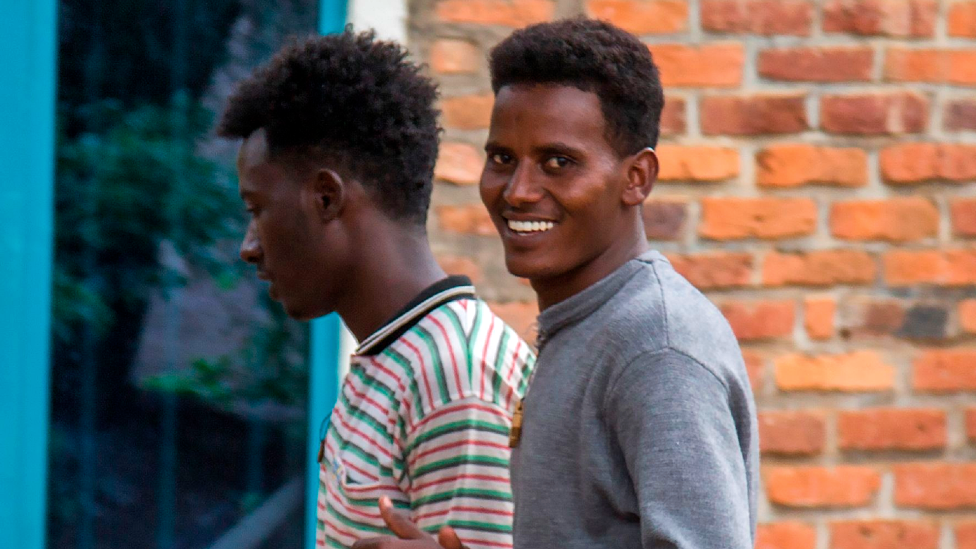Rwanda flight migrants include torture victims, say doctors
- Published
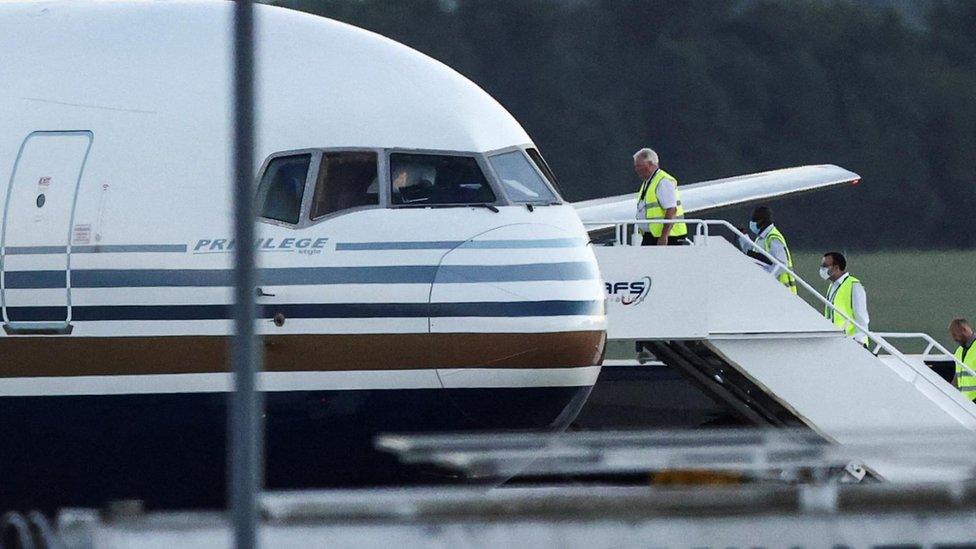
The first flight due to take refugees from the UK to Rwanda was cancelled at the last minute in June
A detailed clinical review of the backgrounds of asylum seekers likely to be sent to Rwanda has found many may have been tortured.
The research by charity Medical Justice questions how people have so far been selected for the proposed flights.
The plan to send some asylum seekers to Rwanda is being challenged next week in the High Court.
The government says the scheme will help end people smuggling and dangerous crossings of the English Channel.
The Home Office's £120m plan aims to send some of those who cross the English Channel on to the African nation to have their claims dealt with there.
If they are found to be in genuine need of protection, Rwanda would offer them resettlement, rather than sending them back to the UK.
The plan is widely opposed by asylum experts, including the United Nations' refugee agency.
The first planned flight was aborted in June after the European Court of Human Rights said judges in London must first rule on whether it was lawful. The Supreme Court's judicial review into the policy, external has now been postponed to September.
Medical Justice, a charity that sends doctors to assess the health of immigration detainees, said it had identified 51 people who had been told by the Home Office they would be sent to Rwanda.
Of those, it had been able to collect more information on 36, almost all of whom were known to have arrived on the Kent coast in dinghies.
Doctors have so far clinically assessed 17:
Fourteen of the 17 had "clinical evidence" that they had been tortured - and six may have been victims of human trafficking, said the charity
Three of that group were told by one Home Office team they would be removed, despite other officials separately acknowledging the trafficking concerns, according to Medical Justice
Fifteen had post-traumatic stress or other complex mental ill-health
Eleven were found to have had suicidal thoughts while in an immigration removal centre - one of whom had attempted twice to take their own life
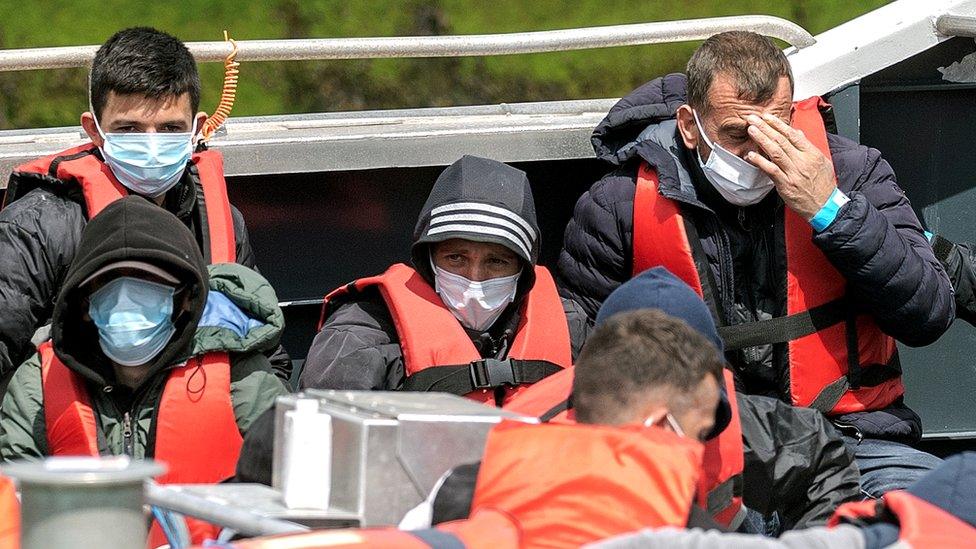
Some 25,000 people have made the journey across the Channel this year in small boats
Doctors concluded that another individual was not mentally fit enough to speak to lawyers about their options - and another needed an urgent assessment as to whether or not they have a brain tumour.
Khalid, not his real name, is one of the people identified by the charity to be sent to Rwanda. He says he fled persecution and abuse in his home country which began after he had opposed the government.
"I left France in a boat for Dover - and I came here because of the political persecution at home," he told the BBC. "I needed to find somewhere that respected human rights. With God's blessing I thought I had come somewhere safe.
"But when I was told I was being sent to Rwanda my mind was full of confusion. Why? I know people who have gone there and they say it is unstable - they don't say good things about it. How can the government say it is a safe country to receive people when it's not? I don't think going there would be safe."
Dr Rachel Bingham from Medical Justice said: "Our report shows extremely high rates of evidence of torture, trafficking and other vulnerabilities in this group, to whom the government plan to deny assessment or interview before they are forcibly removed.
"The policy knowingly places people in an extremely damaging situation and should be considered exceptionally harmful.
"As a doctor, what shocks me most is the total disregard for the need to assess the risks of subjecting individual people to this policy."

A hostel that Rwanda says migrants would be sent to
Next week's major court case challenging the Rwanda plan may become one of the most complex legal battles in recent years against a controversial government policy.
Not only does it involve evidence from individual migrants about why they should not be sent to Rwanda, but lawyers for a number of organisations will tell the court the Home Secretary Priti Patel does not have the power to sanction the flights.
A second stage of the case in October will look in detail at the selection criteria for those warned they will be removed.
A Home Office spokesman said Medical Justice's warnings that vulnerable people would be removed to Rwanda were wrong.
"We have been clear from the start that no one will be relocated if it is unsafe or inappropriate for them," said a spokesman.
"Our thorough assessment of Rwanda has found that it is a fundamentally safe and secure country, with a track record of supporting asylum seekers."
- Published16 August 2022
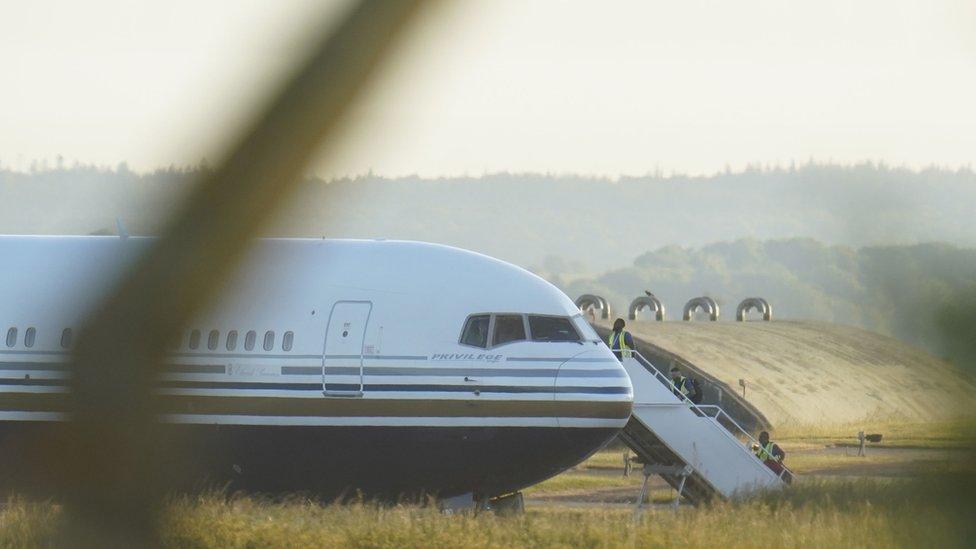
- Published13 June 2024
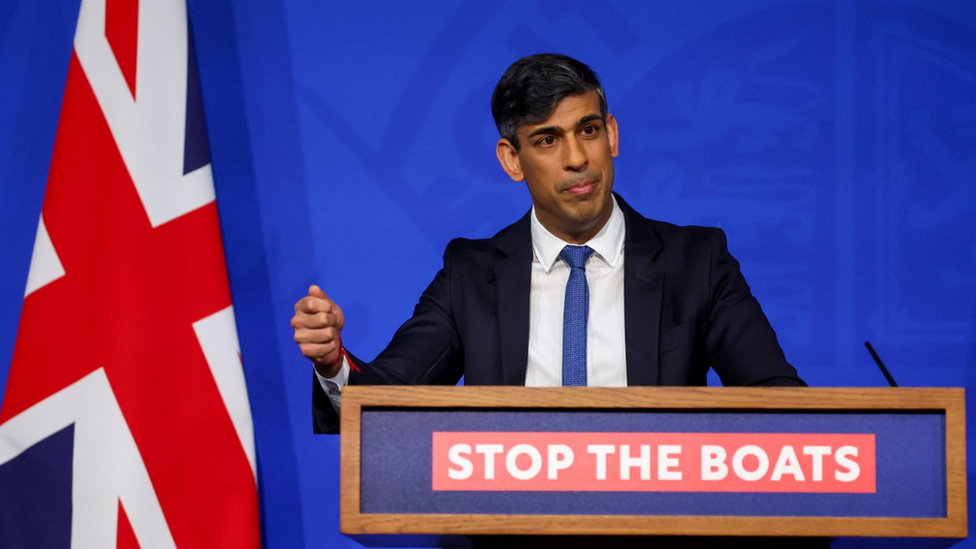
- Published14 April 2022
